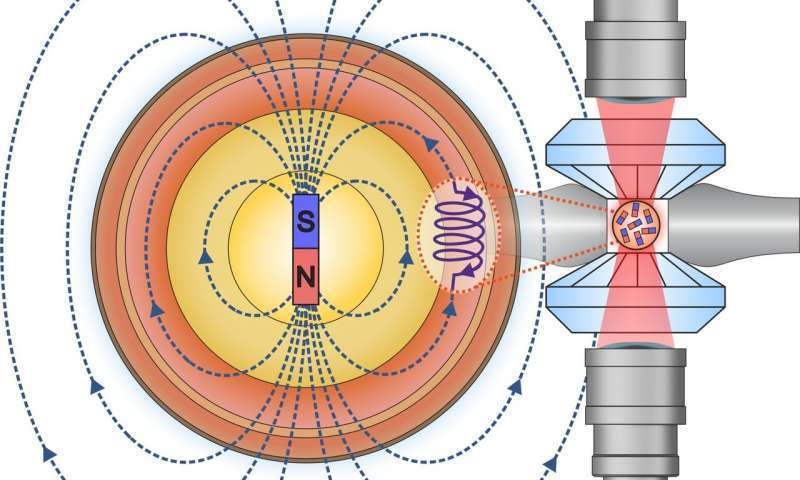
Magnetism in subduction zones
I. Kupenko, G. Aprilis, D. M. Vasiukov, C. McCammon, S. Chariton, V. Cerantola, I. Kantor, A. I. Chumakov, R. Rüffer, L. Dubrovinsky, C. Sanchez-Valle
Nature 570, 102‑106 (2019),
https://www.nature.com/articles/s41586-019-1254-8
Materials constituting Earth's mantle are traditionally considered to be non-magnetic due to pressures and temperatures being too high to preserve magnetic order. However, satellite and aeromagnetic data provide evidence for magnetic anomalies in the mantle, particularly around cooler areas such as subduction zones. The reasons and sources of the anomalies remain largely unknown, but iron-bearing oxides are a potential source due to their postulated high critical temperatures. Of these, hematite (Fe2O3) could be one of the most abundant iron oxides in oxidised subducting slabs.
A new methodology that combines a Synchrotron Mössbauer Source to probe magnetism and double-sided laser heating in diamond anvil cells (DACs) to generate pressures and temperatures characteristic for Earth's mantle was developed at BGI and at ID18 at ESRF. This methodology was applied to study the behaviour of Fe2O3 at pressures up to 90 GPa and temperatures over 1300 K. The surprisingly result is that different phases of Fe2O3 retain magnetic order at conditions in cold subducting slabs that penetrate (or stagnate) in the transition zone. Thus, it has been demonstrated that materials in Earth's mantle are not always “magnetically dead” and can be a source of deep magnetic anomalies.

Graphical illustration of Earth's interior and the experiment. Blue lines with arrows show Earth's magnetic field. Samples of iron oxide (hematite as starting material) were compressed and laser-heated in DACs (right) to simulate the extreme conditions in Earth's mantle. The key observation is the existence of magnetically ordered Fe2O3 phases at these conditions. Courtesy of Timofey Fedotenko.
Tel: +49-(0) 921 55 3700 / 3766, Fax: +49-(0) 921 55 3769, E-mail: bayerisches.geoinstitut(at)uni-bayreuth.de